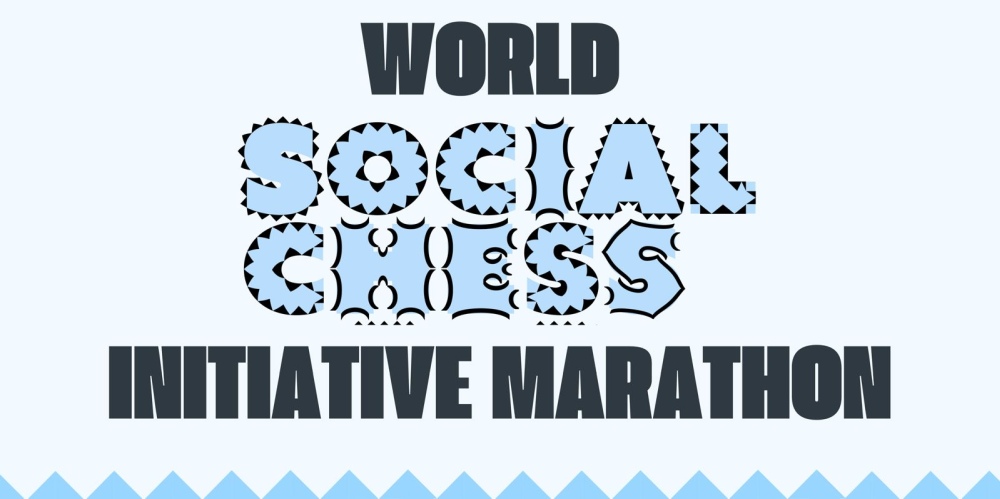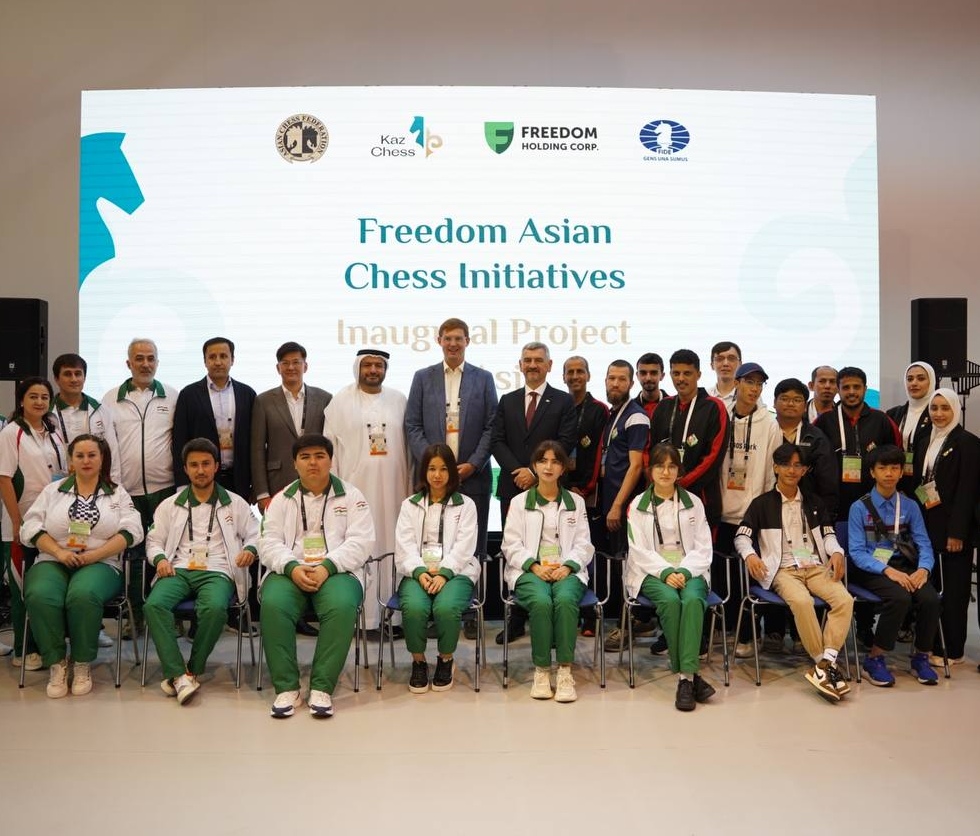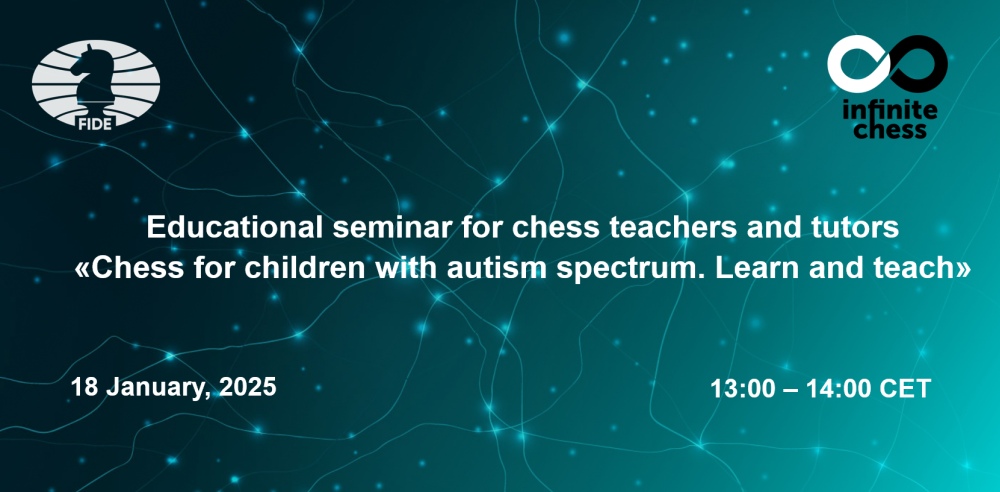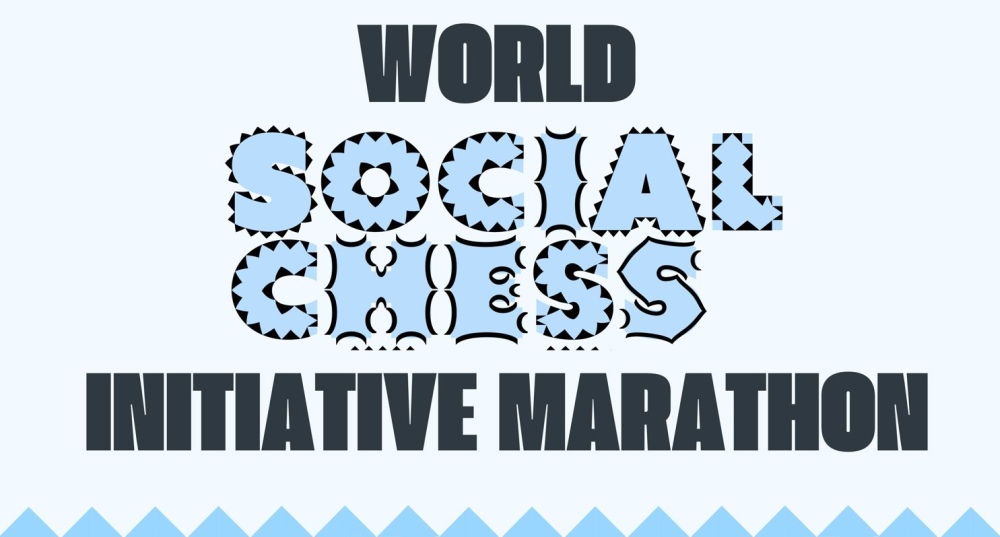
The second session of the World Social Chess Initiatives Marathon brought together chess activists, experts and promoters from across the globe to discuss the benefits of introducing the game to deprived areas and prisons. The participants also discussed the role chess has in helping the elderly cope with challenges of old age.
As the first event in the Year of Social Chess, the Chess Initiatives Marathon was organized by the FIDE Social Chess Committee and brought together experts, activists and NGO representatives working on projects where chess is used as a tool for addressing social issues.
Following the first part of the World Social Chess Initiatives Marathon on January 19, the afternoon session highlighted three relevant topics: how chess can help inmates, troubled youth and children from deprived areas; how the game can be used to help elderly cope with social and psychological challenges of old age; and the role chess can play in building diplomatic bridges between nations.
Reform behind bars: From prisons to deprived areas, how chess helps
Transforming lives in Mexican prisons
José Manuel Barradas of the Mexican Chess Federation spoke about the implementation of the chess programs in Mexican prisons. Last year’s national championship for prisoners saw participation from over 40 institutions, and Barradas outlined an ambitious plan to introduce chess clubs in prisons, supported by government and private funding.
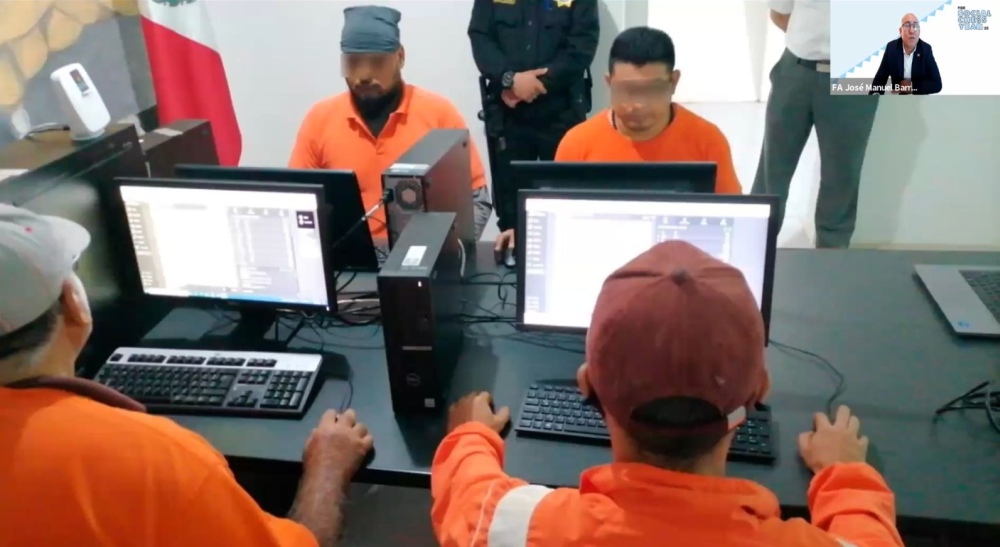
“We need money for boards, pieces, but most important—teachers who can work inside prisons,” he emphasized.
The initiative, guided by the FIDE Social Chess Commission, aims to expand across Latin America.
Barradas highlighted the personal rewards: “Helping people is satisfying, and everyone should try it at least once.”
Nigeria’s Anchor heritage initiative
Focusing on western and northern parts of Nigeria, the Anchor Heritage Initiative employs chess to aid inmate rehabilitation. By providing legal aid, welfare, counseling, and rehabilitation programs, the organization works to facilitate inmates' reintegration into society.
One of its standout programs is the 100-day Chess Initiative, which uses the game as a tool for personal development and skill-building among inmates.
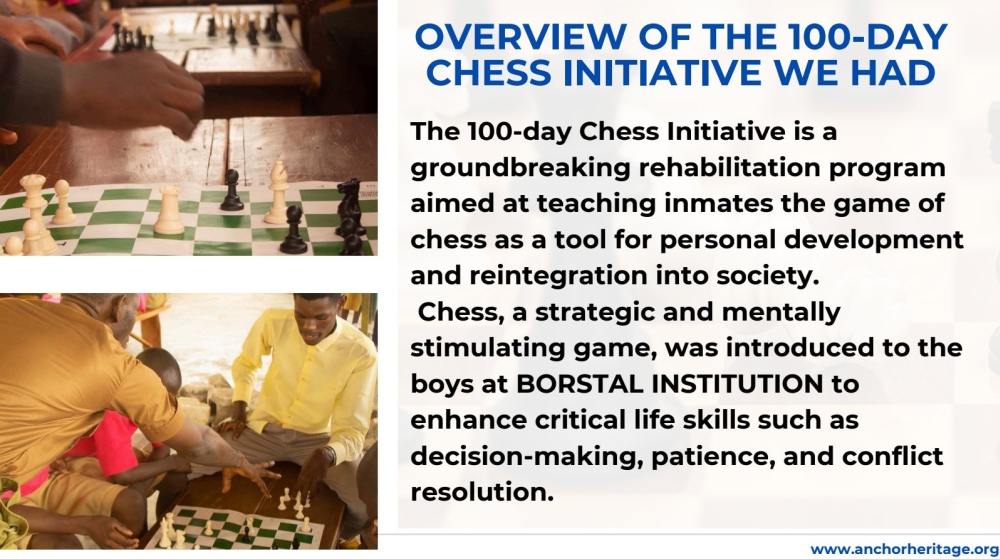
“Pausing and thinking,” a key chess strategy, has helped individuals like Ayo, a 17-year-old participant, manage anger and impulsivity.
Looking ahead, the organization plans to establish Chess Corners in custodial centers and host tournaments. These efforts aim to address Nigeria’s high recidivism rates by equipping inmates with skills for reintegration.
Full presentation:
https://drive.google.com/drive/folders/14ph3sJtozsx4U6RTKFWW1aRtQmd4ix1R
Anchor Heritage – Chess as a Correctional Tool (PDF)
Uplifting vulnerable youth in Brazil and Papua New Guinea
In Brazil’s Ribeirão Preto region, Alexandre Vergara’s “Viva Chess Classes” are transforming lives in Jardim Zara, a neighborhood plagued by social challenges. Part of the Quebrada Viva project, the initiative uses chess to foster critical thinking and community spirit among children from underprivileged backgrounds.
Since its inception in 2021, Quebrada Viva focuses on children and adolescents from low-income and vulnerable backgrounds, utilizing chess as a motivational tool for engagement, education and improvement.
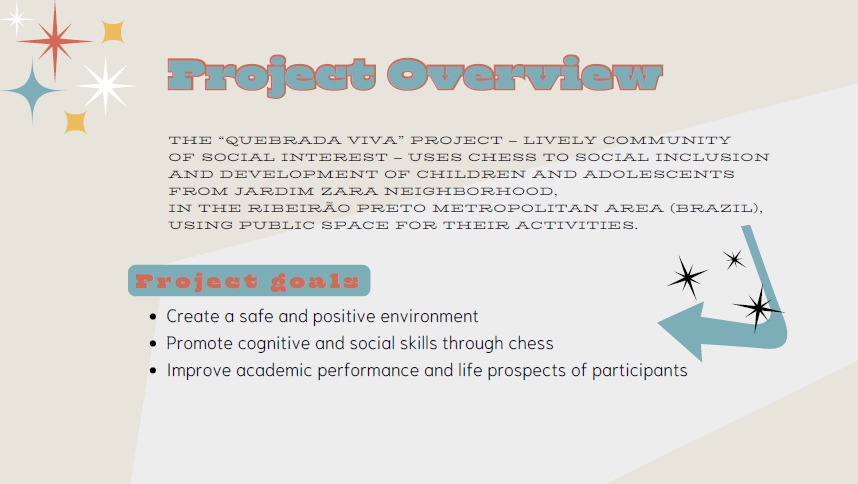
“The goal is to help children in these deprived areas build confidence and have a sense of achievement through structured play and learning,” Vergara said.
In another part of the world - Stephen Deburu’s Chess Inda Hood project in Port Moresby focuses on reducing anti-social behavior and drug abuse among young people. The program emphasizes discipline, critical thinking, and engaging parents—particularly mothers—to involve their children.
“The greatest benefit from this is the stories you hear from people, as testimonies of how chess has changed their lives. Getting them to love the game and to get to know other people gives a sense of progress and achievement, building a positive state of mind,” said Deburu.
Full presentation:
https://drive.google.com/drive/folders/14ph3sJtozsx4U6RTKFWW1aRtQmd4ix1R
Enhancing life for the elderly
Chess for Connection: Bridging generations in Canada
“Chess for Connection” is a Canadian youth-led nonprofit initiative dedicated to addressing the social, emotional, and cognitive challenges faced by seniors.
Inspired by the story of Gilbert Bong Perez—a retired doctor and chess Olympian for Canada— the initiative aims to use chess an inclusive and accessible tool that transcends physical ability and age.
April Zhong, who presented the project, highlighted the importance it has in today’s social climate, noting that as global populations age, seniors increasingly face cognitive and physical challenges, reduced social connections, and heightened risks of loneliness and isolation.
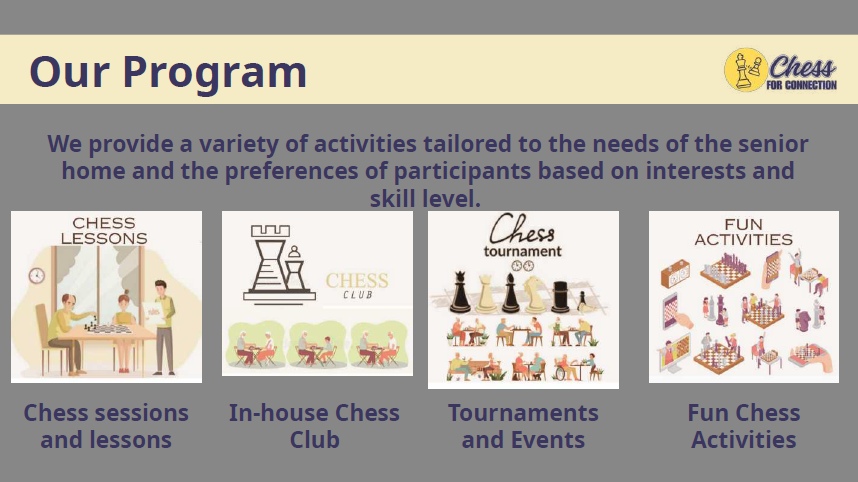
The program offers a variety of tailored activities, ensuring inclusivity and adaptability based on the needs of each senior home and its participants. Activities include chess lessons at an individual or group level, tournaments and events, as well as light-hearted sociable activities such as drinks or discussions.
Regular participation of seniors aged 50 to 90, who praise the program for its engaging activities and opportunities to connect with youth.
With over 800 volunteer hours logged by 30 young chess players, the program has expanded internationally, establishing a branch in Uganda in collaboration with Makerere Chess Society.
Full presentation:
https://docs.google.com/presentation/d/1XbyxhX5xFl3ZycTHzVqSP9jB42h26Bps/edit?usp=drive_web&ouid=108323171340070226706&rtpof=true
Lifelong learning at Club Athletico Paulistano
Cristiana Fiusa Carneiro, a former Brazilian chess champion, legal expert and psychologist, shared her experience organizing chess programs for elderly members of Club Athletico Paulistano in São Paulo.
Starting in 2015 with just four participants and one class a week, the program now boasts three weekly classes and 26 regular attendees.
Carneiro explained how the classes combine chess instruction with opportunities for socialization and mental stimulation.
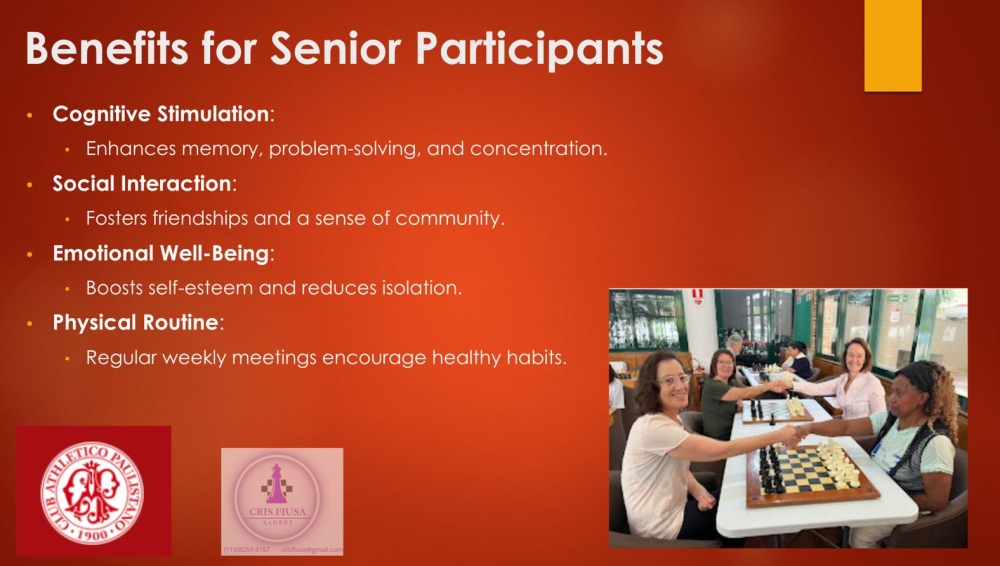
The classes are spread into four sections – they begin with giving people time to socialise and connect, making them feel more comfortable with the setting. The next step is to solve chess problems, to help stimulate them. Then comes the main point of the lesson – teaching strategy through theoretical lessons, exercise and games. The lesson ends with friendly matches between participants.
“Regular sessions provide a sense of security and community, reducing isolation and improving well-being,” she noted.
Plans for future expansion include digital tools and collaborations with other senior programs.
Full presentation:
https://docs.google.com/presentation/d/1ZSkj-t1EgQRanrGDAB6Fho65QeZ1ug3X/edit#slide=id.p5
Chess for Aging Group at Club Athletico Paulistano (PDF)
Chess as a tool for diplomacy and peace
Lior Aizenberg, founder of Chess4all and Chess4Solidarity in Israel, highlighted the role of chess as a diplomatic tool.
The Chess4Solidarity initiative organized groundbreaking matches between players from Israel and Sudan, involving over 400 participants in 2020. The event was organized just a day before the two countries officially established diplomatic ties.
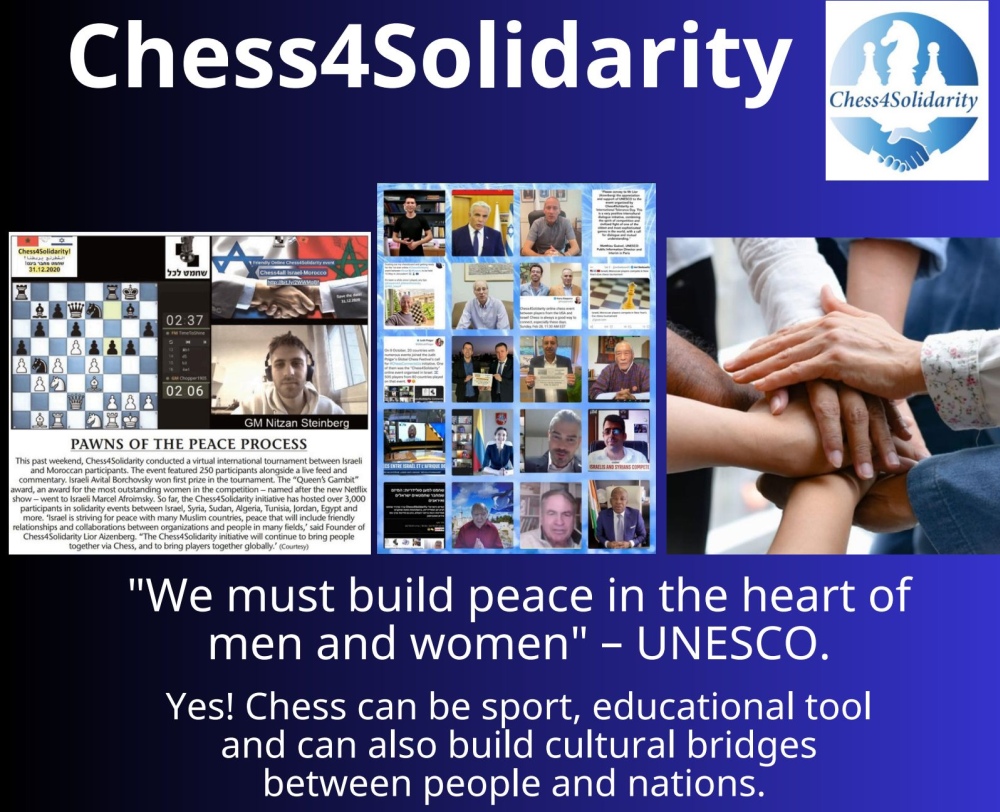
In 2021, the project gained UNESCO recognition for its efforts in fostering cultural ties, starting with a historic match between Israeli and Moroccan players following normalization agreements.
“Chess can be the first port of call to build bridges,” Aizenberg said. Beyond diplomacy, the initiative raises awareness for humanitarian causes, including Israeli hostages, and aims to expand its community to 20,000 members.
Full presentation:
https://drive.google.com/drive/folders/14ph3sJtozsx4U6RTKFWW1aRtQmd4ix1R



